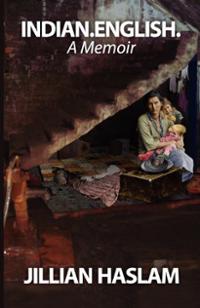
Indian.English. is a memoir written by an Anglo-Indian girl, who was born in India. Lived in extreme poverty in West Bengal as one of the many children in an ever-growing large family. She talks about the various hardships that she and her family went through. She talks about the humiliation that she and her sisters had to go through for being the poorest of the poor, for having white skin and for just being young girls. It can be the story of any poor family in India. Or other poor regions of the world.
Is her story very different from other poor people in the country? Not really. There may be a bit of added disadvantage of standing out due to white skin. But I am sure the same would have turned to advantage many times that author never mentioned. It is pathetic to read about the bad conditions that Jillian and her family had to go through. The hunger that made them eat from the garbage dumps or the various violations that they had to deal with. Many scenes depicted by the author from her families living in Calcutta can make you feel very bad. And you wonder if there is anything that you can do to make things better for poor people. In this particular story though there are many questions that remain unanswered.
What author has never questioned is her parent’s zeal to keep producing children when they had nothing to feed the ones they already had. It seems they were perpetually producing children all the time. Assuming that the food would come from the heaven somehow. Siblings keep popping up throughout the story. Towards the end of the story, a sister called Barbara comes in the story. And you wonder why we never heard of her before. The blame is always put on others and never are the own actions analyzed.
As a memoir, there are many gaps in the story. The author is at school and at home at the same time. She names people who were bad to her like a certain old lady who eventually landed in an old age home. But she never mentions the name of the people who helped them, who were generous. Who took siblings into their homes and gave them a roof over the head. She never mentions what work her mother does. She only mentions she went out and she came back with some food in hand. Father is mentioned only when he is not well. And is admitted to a hospital. Rest of the time what he does or if he does anything is never mentioned.
Suddenly the author starts getting jobs. And she becomes a highly paid executive. How did she get that – was she educated or trained for the same is not mentioned. She never mentions why would someone give her millions of rupees for no reason. I wonder when she detested India and Indians so much why did she marry an Indian man, that too when she knew about his disease. She never asks her parents why they chose to stay back in India once the British left India and they could have left.
I get a feeling that the book has been written to pursue the purpose of charity that the author now runs. Although I must say there are many books listed on her website. It could have been a very good story to depict the plight of the poor in India. And how a family managed to come out of it. Somehow I found the honesty missing in the story.
Avoid Indian.English.









reminds me of a few anglo indians.. my school friends.
most of the anglos if i can so call have left india..gone 2 england.
some who remained have mingled with the indian mainstream, married indians.
the indian railways, defence oews a lot 2 these anglos who were the initial employees of these services during the british raj.
eric bhaiya.. john uncle, avrille auntie sometimes come 4 a short holiday from england, australia with a box of sweets.
the kindergarten schools r never the same without them …the anglo teachers gomes teacher nowadays.
what dou say !?
This Anuradha Goyal is a creep! That’s why her name is ‘GO YAR’